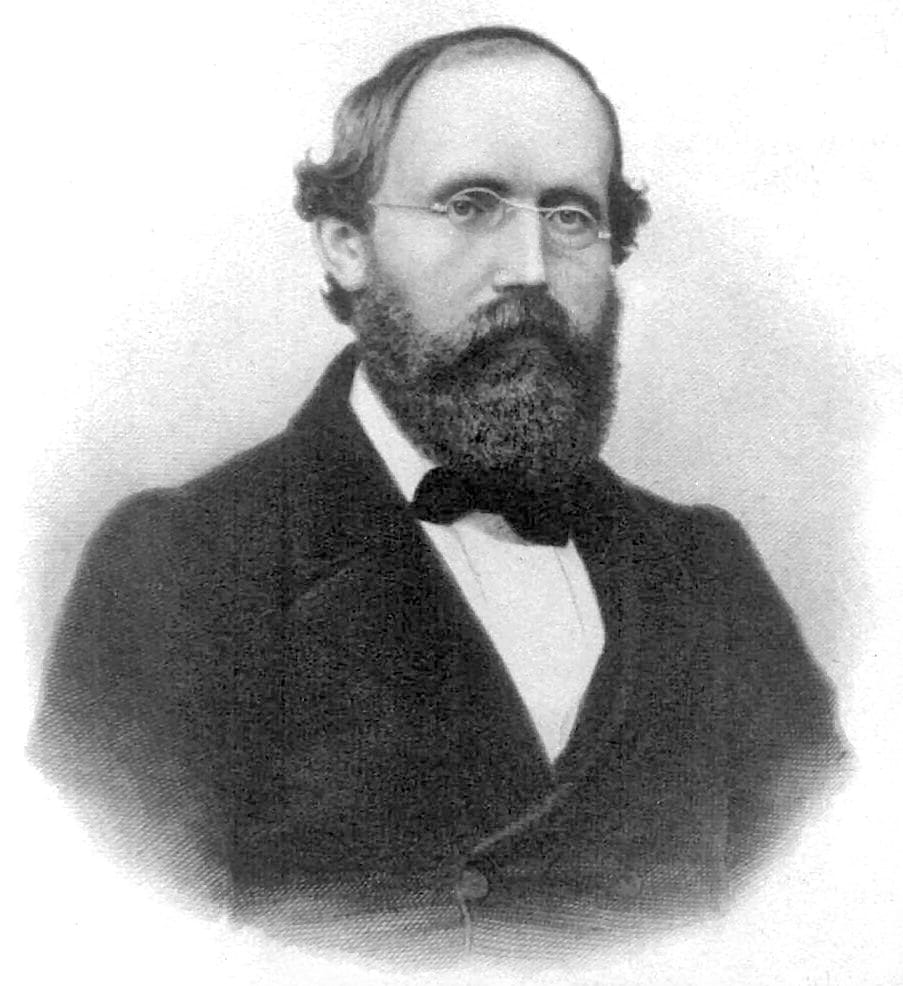
Bernhard Riemann
Georg Friedrich Bernhard Riemann (German: [ˈɡeːɔʁk ˈfʁiːdʁɪç ˈbɛʁnhaʁt ˈʁiːman] ; 17 September 1826 – 20 July 1866) was a German mathematician who made profound contributions to analysis, number theory, and differential geometry. In the field of real analysis, he is mostly known for the first rigorous formulation of the integral, the Riemann integral, and his work on Fourier series. His contributions to complex analysis include most notably the introduction of Riemann surfaces, breaking new ground in a natural, geometric treatment of complex analysis. His 1859 paper on the prime-counting function, containing the original statement of the Riemann hypothesis, is regarded as a foundational paper of analytic number theory. Through his pioneering contributions to differential geometry, Riemann laid the foundations of the mathematics of general relativity. He is considered by many to be one of the greatest mathematicians of all time.
More Details
- Other Names :Bernardus Riemann,Bernhard Riemann,Bernhard Riman,Bernhards Rīmanis,Georg Friedrich Bernhard Riemann,Georg Friedrich Bernhardt Riemann,Riman Georg Fridrix Bernhard,Μπέρναρντ Ρίμαν,Бернгард Ріман,Бернхард Риман,Бернхард Рыман,Бэрнгард Рыман,Георг Фридрих Бернхард Риман,Риман Георг Фридрих Бернхард,Բեռնարդ Ռիման,ברנהרד רימן,برنارد ريمان,برنهارت ریمان,برنہارڈ ریمان,بێرنارد ڕیمان,رىمان,बर्नहार्ड रीमान,बर्न्हार्ड रीमन,बर्न्हार्ड रीम्यान,बेर्नार्ड रीमान,বাৰ্নহাৰ্ড ৰিমান,বের্নহার্ট রিমান,பேர்னாட் ரீமன்,ಬರ್ನ್ಹಾರ್ಡ್ ರೀಮನ್,แบร์นฮาร์ท รีมัน,ဘားနတ်ဒ် ရိုင်းမင်,ბერნჰარდ რიმანი,ប៊ែនហាដ រីម៉ាន,ベルンハルト・リーマン,伯恩哈德·黎曼,波恩哈德·黎曼,黎曼,ꯕꯔꯟꯍꯥꯔꯗ ꯔꯥꯏꯃꯦꯟ,베른하르트 리만
- WikiPedia Page
- Country : Kingdom Of Hanover
- Born on 20 July